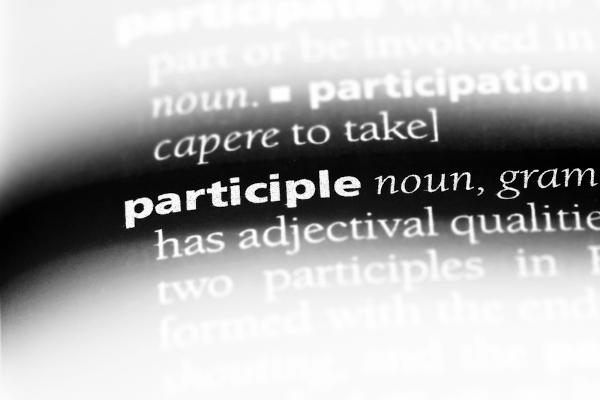Shortening words when speaking and even when writing is a very common practice in English. Generally, when writing a contracted word, an apostrophe (') is inserted where a letter is missing. See some examples in sentences:
→ Who's talking? (Who is talking?)
→ I'm going. (I am going.)
→ They haven't seen her. (They have not seen her)
In English, although contractions also occur in writing, it is in speech that its use is more recurrent. There are, however, some contractions that are widely used in both actions (speech and writing) and that must, therefore, be learned.
We will demonstrate each of them separately, that is, the “Positive Contractions”, or affirmative contractions, and the “Negative Contractions”, or negative contractions.
Abbreviated forms in the affirmative sentence
In this category, we have to be very careful to observe some words in their contract form. That's because some contractions can have two or even three meanings, but the same spelling. This is the case, for example, of
"She She'd",that can be "she had" or"she would". We must take the context into account to know which one it is.See some examples:
→ she She'd like to watch! (She would like to watch)
→ She'd finished her homework when I arrived. (She had finished her homework when I arrived.)
Another contraction that should also be carefully watched is the ('s), because, besides being able to mean "is"or "has", it can still be used with nouns, names, questions, among others, and not just with pronouns, as is commonly taught.
See some examples:
→ Nick'sarrived.
→ The cab'slate.
→ where's the butter?
→ here'syour place.
→ there'sno one like you.
Contracted Form
I'm – I've – I'll – I’d
-
You're – you've – you'll – you'd
Do not stop now... There's more after the advertising ;)
He's - he'll - he'd
she's - she'll - she'd
It's – It'll
We're – we've – we'll – we'd
They're – they've – they'll – they'd
Original Form
I am – I have – I will/I shall – I would/I should/I had
You are - you have - you will - you had/you would
He has/he is - he will - he had/he would
She has/she is - she will - she had/she would
It has/it is - it will
We are - we have - we will - we had/we would
They are - they have - they will - they had/they would
Abbreviated forms in negative sentence
In the negative form, there are two ways to put the verb “to be” contracted:
→ You aren't - You're not (contracted) = You are not (original)
In questions, "am not" changes to the form hires "aren't", as shown in the example:
→ I'm pretty, aren't I?
Contracted Form
Aren't – isn't
Can't – couldn't
Didn't – doesn't – don't
Hasn't – haven't – hadn't
Mayn't – mightn't – mustn't
Needn't – Oughtn't
Shan't – shouldn't
Wasn't – weren't
Won't – wouldn't
Original Form
are not - is not
Cannot, can not – could not
Did not - does not - do not
Has not – have not – had not
May not – might not – must not
need not
ought not
Shall not - should not
Was not - were not
Will not - would not
By Janaína Mourão
Graduated in Letters - English
Would you like to reference this text in a school or academic work? Look:
MOURãO, Janaína Pereira. "Contracted forms: Abbreviated forms in English"; Brazil School. Available in: https://brasilescola.uol.com.br/ingles/contracted-forms-formas-abreviadas-ingles.htm. Accessed on June 28, 2021.
Will Future, text that brings information about the future with will, affirmative, negative and interrogative, in addition, brings examples of each form and explanations of how to use the will future also in contracted forms.



